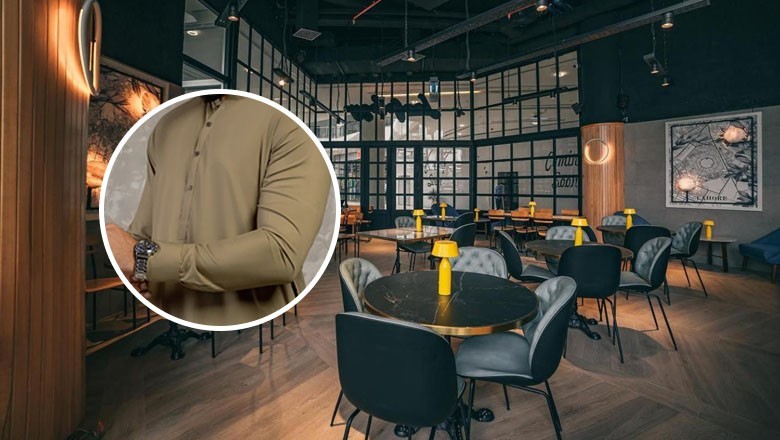A controversy has taken Karachi by storm after a local restaurant allegedly denied entry to a customer for wearing shalwar qameez, a traditional and widely respected attire in Pakistan. The incident, reported by ARY News, has sparked heated public debate about cultural respect, discrimination, and consumer rights in the city’s hospitality sector.
Lawyer’s Ordeal at Upscale Karachi Restaurant
Abdul Latif, a practicing lawyer, claims he faced blatant discrimination on May 18 while attempting to dine at a private restaurant situated in an upscale area of Karachi. According to Latif, his only fault was his choice of clothing: the shalwar qameez, an outfit considered both national and cultural in Pakistan. Latif reported that soon after his arrival, a waiter informed him that food service would not be provided to him due to the dress code.
To add to the humiliation, Latif alleges that the restaurant manager himself dismissed shalwar qameez as “cheap dressing,” a remark that deeply offended him and, by extension, many who value Pakistan’s traditional attire. The manager, Latif claims, also threatened to forcibly remove him from the premises if he protested or created a scene.
Legal Action and the Quest for Justice
Feeling insulted and discriminated against, Abdul Latif decided to take legal recourse. He initially served a legal notice to the restaurant, demanding an explanation and a formal apology for the disrespectful behavior. However, with no response from the restaurant’s administration, Latif has now approached the Consumer Court seeking formal action.
In his complaint, Latif maintains that the restaurant’s policy and the manager’s remarks not only targeted him personally but also showed contempt for Pakistan’s cultural values. He contends that denying entry or service to a customer based on traditional attire is a violation of basic consumer rights and an act of social discrimination.
Public Reaction: Outrage and Calls for Accountability
News of the incident has quickly circulated on social media and within Karachi’s legal and business circles, prompting widespread criticism of the restaurant’s alleged policy. Many citizens have voiced their support for Abdul Latif, emphasizing that the shalwar qameez is not just a garment but a symbol of Pakistani identity and pride.
Critics argue that such discriminatory practices have no place in a diverse society and that restaurants and other service providers must respect cultural norms as well as consumer rights. Some have called on authorities to carry out inspections and enforce regulations to ensure that businesses do not indulge in discriminatory dress codes or policies.
Cultural Attire and Consumer Rights in Focus
This incident raises important questions about the intersection of cultural values and commercial practices in Pakistan. While many upscale restaurants in metropolitan cities adopt dress codes to maintain a certain ambiance, outright rejection of traditional attire is seen by many as unpatriotic and exclusionary.
Consumer rights advocates highlight that customers have a right to fair treatment and dignity regardless of their appearance, so long as they are not violating public decency or safety norms. In a country where shalwar qameez is worn by people across all walks of life, barring someone on that basis may be interpreted as both cultural insensitivity and a violation of anti-discrimination laws.
The Road Ahead: Legal and Social Implications
As Abdul Latif’s complaint proceeds through the Consumer Court, the case will likely set an important precedent for similar disputes in the future. The legal proceedings will not only address Abdul Latif’s grievance but may also prompt clearer guidelines for businesses regarding dress codes and anti-discrimination measures.
This incident serves as a reminder for service industry establishments to be mindful of the rights, dignity, and cultural sentiments of their patrons, ensuring that respect and inclusion remain at the heart of their business practices.
Topics #Consumer rights Karachi #Cultural attire discrimination #Karachi restaurant dress code controversy #Shalwar qameez discrimination Pakistan #trending pakistan




